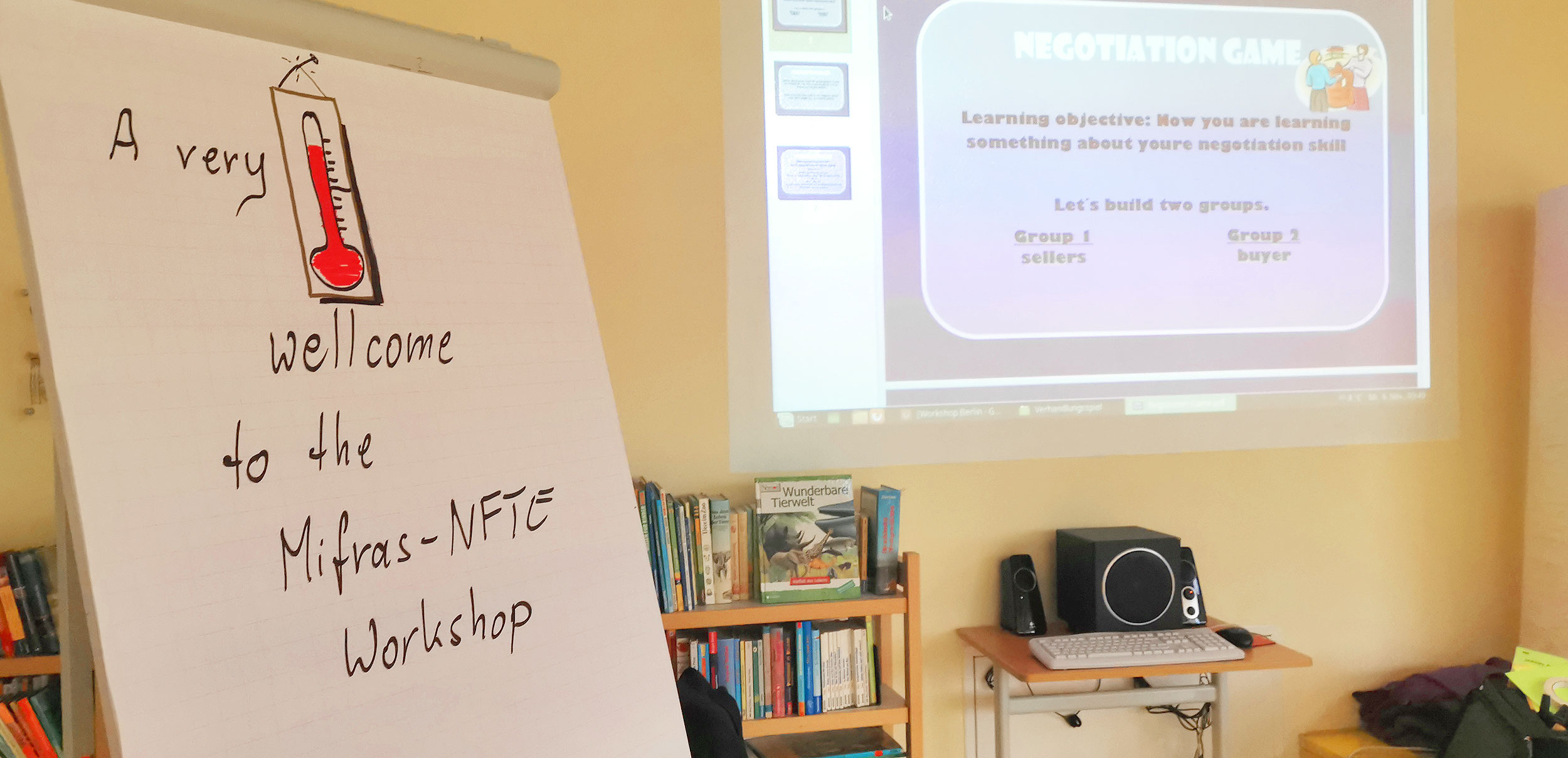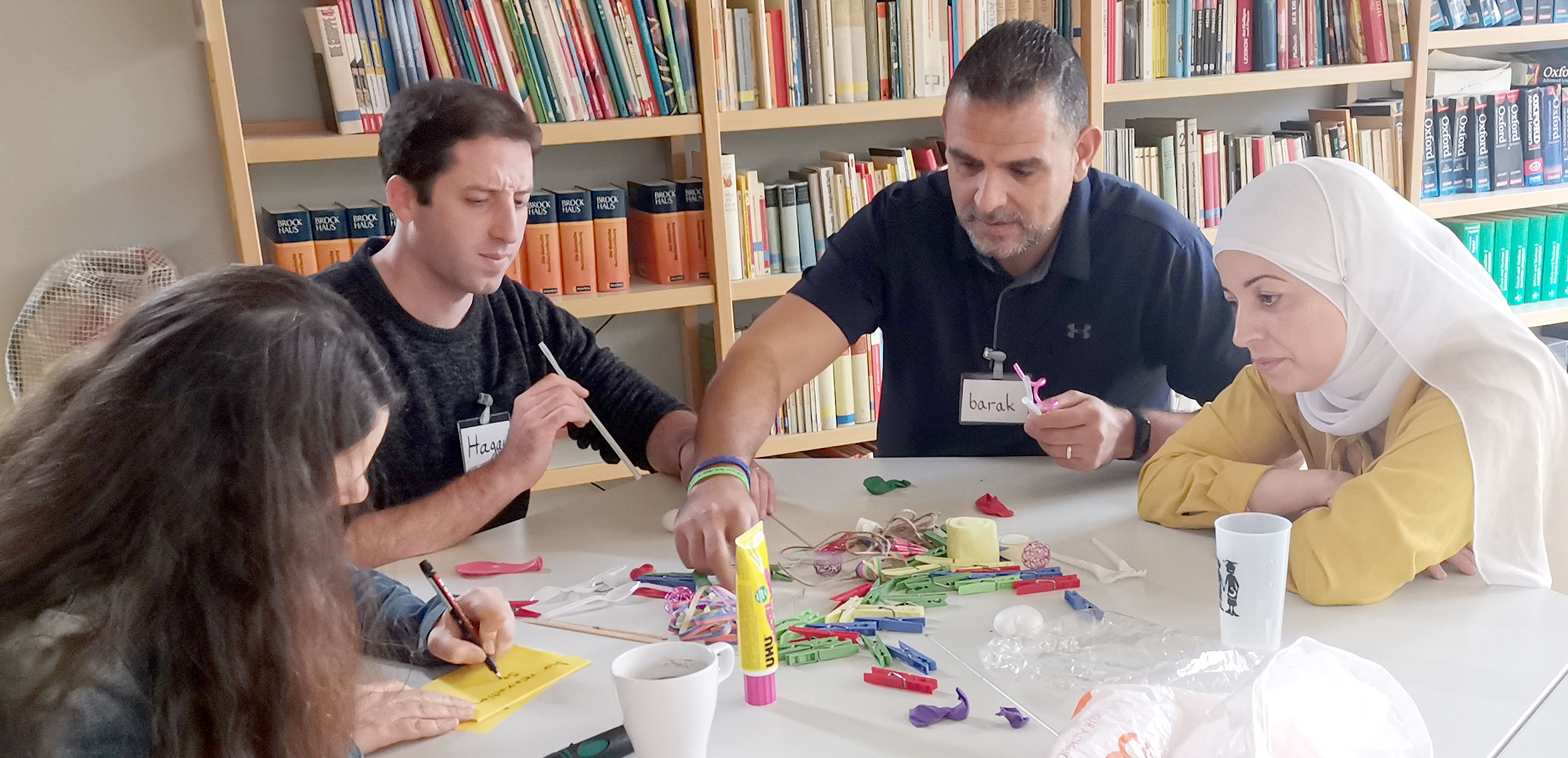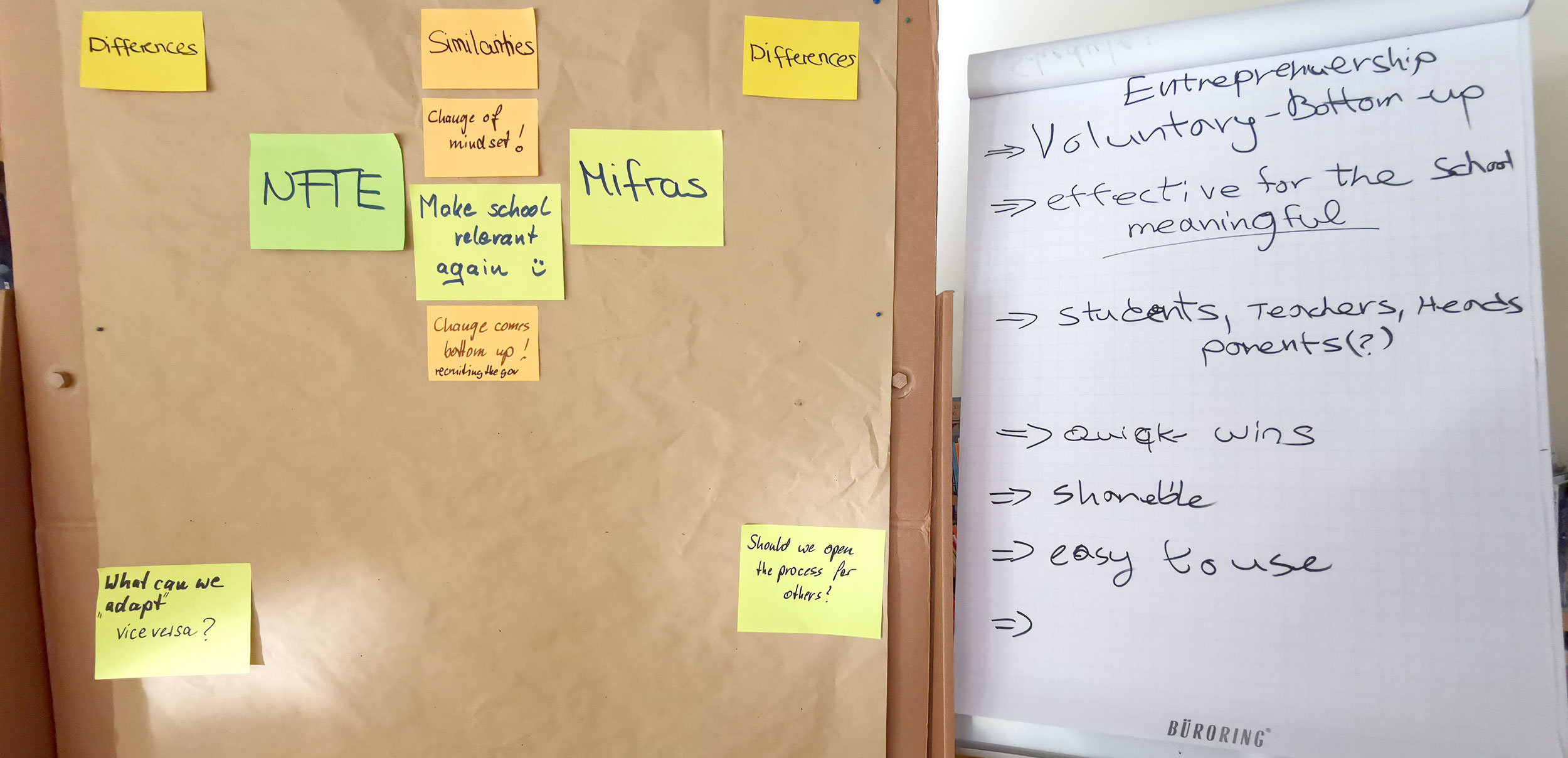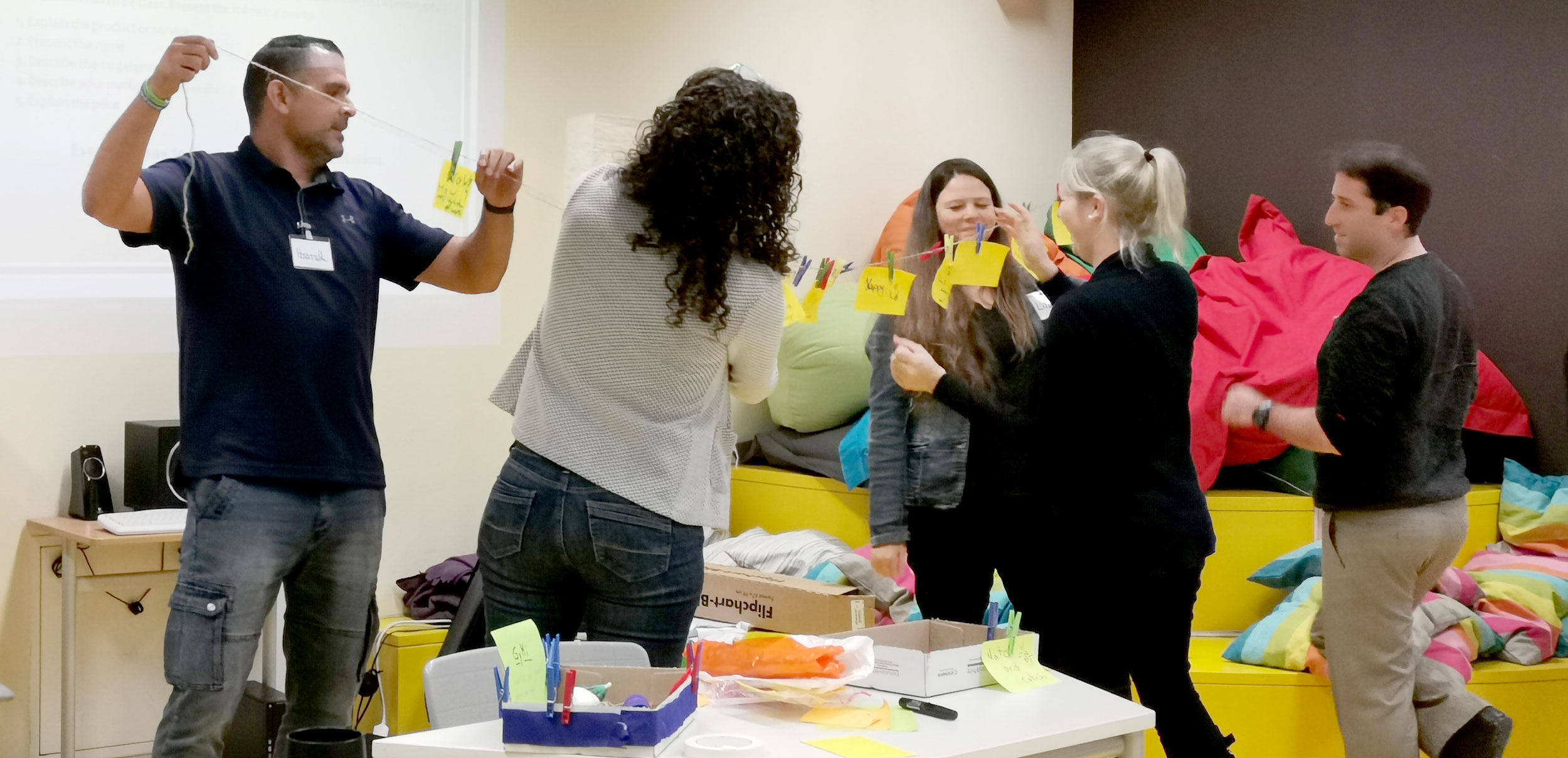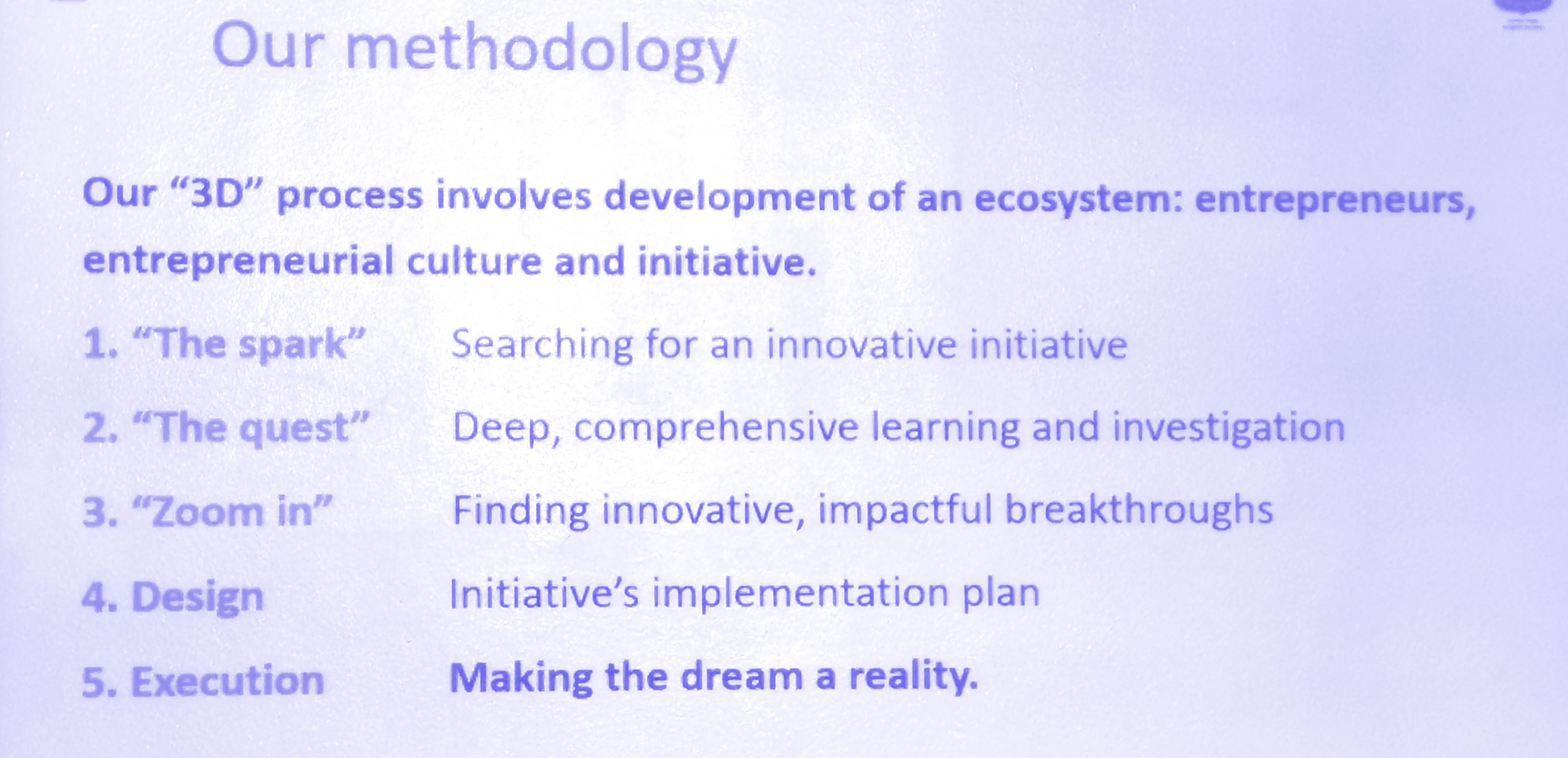Entrepreneurship Education in Social Hotspots
Today, there is more demand than ever before for entrepreneurial thinking, including in areas outside the commercial sector. However, to date, the need for such thinking has hardly been acknowledged at all in the education sector. As a result, the ability to think and act in an entrepreneurial way is not included in school curricula. Two education institutions in Germany and Israel are working together to create a model that aims to fill this gap. Schools, teachers and pupils are given tools designed to equip them with social, ecological, digital and business skills and to develop an entrepreneurial mindset.
The model will combine the experiences of both organizations and is intended predominantly for use in further training in schools and teacher training institutions. The goal is to develop sustainable framework conditions that provide better opportunities for social mobility and participation among socially disadvantaged pupils in particular.
Participants
14 education specialists and teachers
Project content
Entrepreneurial thinking is not usually included in teacher training curricula. The model that has been developed is designed to enable teachers to develop an entrepreneurial approach, to communicate it to their pupils, and to meet the challenges that arise within schools with an entrepreneurial attitude.
Project work methods
In two moderated workshops, and with the aid of test studies at two schools, the organizations involved and the participating schools will discuss their experiences of programs that are already running. On this basis, best practices will be taken into account and combined in order to jointly create a new model.
Project goals
Entrepreneurship Education aims to support the education of pupils to become responsible, critical citizens who are able to participate in globally digitalized (professional) life. The skills required for this purpose will be taught with the aim of promoting social participation and thus also strengthening the democratic structures of both countries. Here, teachers are regarded as aides to education. They are encouraged to enter into an interactive dialog with their pupils, instead of “only” imparting knowledge. Entrepreneurship Education in turn encourages school principals to develop an entrepreneurial approach and on this basis to further develop their schools and improve career opportunities for their pupils. The German-Israeli joint project creates a bilateral network of experts and enhances international knowledge exchange.
The model will combine the experiences of both organizations and is intended predominantly for use in further training in schools and teacher training institutions. The goal is to develop sustainable framework conditions that provide better opportunities for social mobility and participation among socially disadvantaged pupils in particular.
Participants
14 education specialists and teachers
Project content
Entrepreneurial thinking is not usually included in teacher training curricula. The model that has been developed is designed to enable teachers to develop an entrepreneurial approach, to communicate it to their pupils, and to meet the challenges that arise within schools with an entrepreneurial attitude.
Project work methods
In two moderated workshops, and with the aid of test studies at two schools, the organizations involved and the participating schools will discuss their experiences of programs that are already running. On this basis, best practices will be taken into account and combined in order to jointly create a new model.
Project goals
Entrepreneurship Education aims to support the education of pupils to become responsible, critical citizens who are able to participate in globally digitalized (professional) life. The skills required for this purpose will be taught with the aim of promoting social participation and thus also strengthening the democratic structures of both countries. Here, teachers are regarded as aides to education. They are encouraged to enter into an interactive dialog with their pupils, instead of “only” imparting knowledge. Entrepreneurship Education in turn encourages school principals to develop an entrepreneurial approach and on this basis to further develop their schools and improve career opportunities for their pupils. The German-Israeli joint project creates a bilateral network of experts and enhances international knowledge exchange.
UN Sustainable Development Goals (SDGs)





Cooperation partners
MIFRAS Educational Entrepreneurship Incubator
NFTE- Network for Teaching Entrepreneurship
MIFRAS Educational Entrepreneurship Incubator
NFTE- Network for Teaching Entrepreneurship







